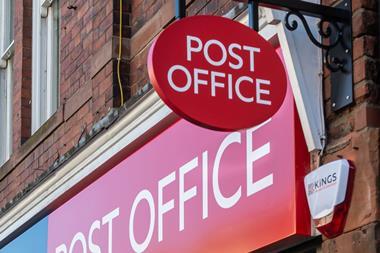
Budget fall out continues to be a top priority for the nationals, with The Sunday Times revealing that Tesco is facing a wage bill increase of £1 billion following the national insurance tax increase.
According to analysis by Morgan Stanley, Tesco - which is the largest private sector employer in the UK with 300,00 employees - will be facing an additional £250 million on its yearly tax bill from next April.
Spurring fears of further prices rises for consumers, Tesco’s additional costs come in the wake of last week’s similar announcements from Sainsbury’s, Asda and Morrisons, which revealed they would be paying an extra £1.3 billion between them over the course of this parliament.
Co-op - which employs 55,000 people across the UK - also added its voice to the chorus of complaints over the weekend, revealing on Saturday that its NI bill would jump by “tens of millions of pounds per year”.
The response to the changes, which will see employers’ national insurance contributions rise to 15% on a earnings above £5,000 (from 13.8% on wages above £9,000), will add pressure on Reeves to rethink her plans to raise almost £25bn.
Sticking with the budget, the hospitality industry is fighting back following expectations that it will also be hit dispoportionately hard (Financial Times). More than 200 hospitality leaders have come together to warn of the potential impact on the sector, warning Reeves of their “grave fears” for the future of the sector and asking her to water down the tax increase.
In the letter, co-ordinated by trade group UK Hospitality, businesses said the changes to the NICs threshold are ”not just unsustainable for our businesses, they are regressive in their impact on lower earners and will impact flexible working practices which many older workers and parents rely upon”.
Signatories including Green King, Fuller, Smith & Turner, Mitchells & Butlers, Whitbread and Premier Inn have asked the government to change the structure of the new rates, with a lower rate of 5% for workers earning between £5,000 and £9,100, or an exemption for lower-band taxpayers who work fewer than 20 hours a week.
They also warned that if the budget went ahead many would have to “drastically cut jobs and reduce the hours of team members”.
Asda has also stayed in the spotlight over the weekend, following last week’s shock mass redundancy announcement which saw it making nearly 500 head office employees redundant in a move designed to redefine roles to ”remove duplication and simplify structures”.
According to reports in The Telegraph, Asda is planning more job cuts in the coming months as it prepares to let go a “meaningful” number of employees. The next wave of redundancies is expected to target staff working on its IT update, ‘Project Future’, due to be completed in the new year.
It is also believed that union chiefs are considering discrimination claims against Asda following scrutiny into the supermarket’s redundancy process, with a particular focus on women who were made redundant while on maternity leave.
Asda boss Stuart Rose stressed on Friday that no employment rules had been broken, saying: “It is categorically not against the law. Why would I do something that was against the law?”
Elsewhere, it’s been revealed that M&S will find out the fate of its Oxford Street flagship store within the next month, with This Is Money reporting that deputy prime minister and housing secretary Angela Rayner will be either blocking or approving plans for the store by 5 December.
M&S applied for permission to demolish the store to create a new 10-storey building, which would include a new store and an office block. However, the changes were blocked by Michael Gove last July, with an appeal delayed by the general election.
Boss Stuart Machin called the decision ”utterly pathetic”, insisting the development would help revitalise the area.
There’s not much food and drink news around this morning, but The Guardian has reported on a new trial which is being developed to see if a chemical found in red grapes can help prevent bowel cancer. The chemical, Resveratrol, is also found in blueberries and peanuts.



















No comments yet